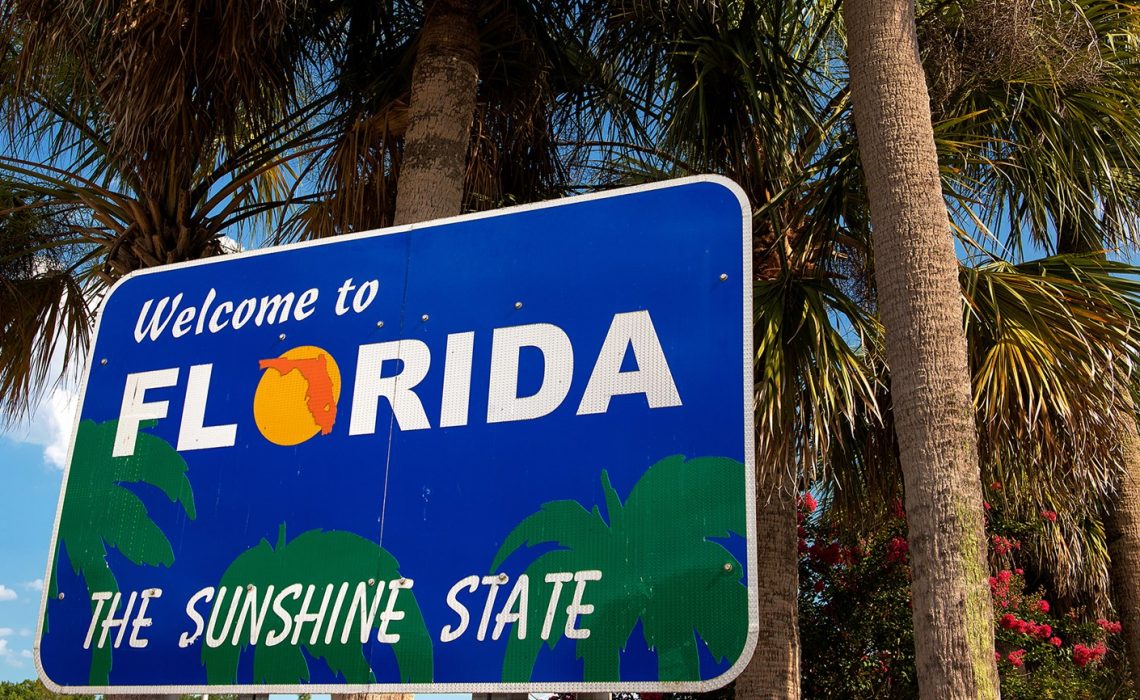
You might also like:
With its vote to gut Visit Florida’s budget from $82 million to $25 million, the Florida state legislature has greatly underestimated the importance of the destination marketing organization, travel officials said.
U.S. Travel Association CEO Roger Dow, who campaigned aggressively to keep Visit Florida well funded, said the move would have dire consequences, as has been experienced by states such as Colorado, Washington and Pennsylvania when their tourism marketing was cut.
“Despite the obvious benefits of public funding for tourism promotion, Florida’s legislature has chosen to risk the jobs of 1.4 million Floridians for meager savings now,” Dow said. “A number of states have made ill-advised cuts to their tourism offices. The economic consequences of this risky, discredited experiment are swift, severe and can take decades to recover from.”
Don Welsh, president of Destination Marketing Association International, called the decision “shortsighted” and “politically motivated.”
“This is an organization that over the years has been very return-on-investment-focused,” Welsh said of Visit Florida. “They’ve been transparent in terms of the tax and employment benefits to the state and clear that for every dollar of public funds what the return on investment is.
“For this to have happened for politically motivated reasons is a very shortsighted decision by some of the elected leaders that will have negative consequences for the state, not only to the tourism industry but to the people who live in Florida who will realize potentially the reduction of revenues and state taxes.”
According to Gil Langley, chairman of the Florida Association of Destination Marketing Organizations, the slashed budget “hinders Visit Florida’s ability to do its job.”
“With only $25 million dedicated to promoting our state, there’s no way Florida can stay on the same playing field as states like California,” Langley said. “Not to mention, Visit Florida’s efforts are what keeps tourists from flying over Florida to Mexico, the Bahamas and now Cuba.”
Among the areas that could be affected by a reduction in marketing is Sarasota, where tourism officials told the Sarasota Herald-Tribune that it could mean as much as a 200,000-person drop in visitation for the region from a total of 2.4 million.
Farther south, Jeff Webb, president of the Lee County Hotel Association, which includes Fort Myers and Sanibel Island, said that Visit Florida offered a significant complement to the county’s own advertising efforts.
“Visit Florida is super important to us in the industry, and why they [slashed funding] makes no sense to me,” he said. “It’s going to impact our economy, and there’s a lot of history in the past from other states that have shown when you cut funding for advertising, it devastates [tourism income in] these states.”
Webb said that many of the states in Florida’s competitive set, such as California, are increasing their marketing.
“You have to be on the forefront of people’s minds when they’re thinking about beaches or great restaurants or warm climates to go to,” he said. “When [other destinations] see a wounded animal on the side of the road, which is what we’re going to be, they’re going to continue to ride and grab the money and find places to market. If we’re not marketing Florida and all the great things we’re about, [people] will go to California, Texas, Alabama, all these other great places that have beaches and shoreline, and we’re going to lose out.”
Republicans downplay impact
Visit Florida’s opponents, the most vocal of whom has been Florida House speaker Richard Corcoran, a Republican, pounced on the organization last year after the revelation that it had paid rapper Pitbull $1 million to promote the state, leading to the resignation of Visit Florida’s CEO in January.
What’s more, Rep. Paul Renner (R-Palm Coast) earlier this year told Travel Weekly that people will come to Florida with or without the efforts of Visit Florida.
“Florida is not a secret,” he said. “It’s not like we’re convincing people to come to some remote corner where nobody goes.”
Michael LaFaive, director of the Morey Fiscal Policy Initiative with the Michigan-based Mackinac Center for Public Policy, a conservative think tank, is the author of a 2016 study on state tourism-promotion funding that found that state tourism marketing produces negative returns. When asked about Florida’s surging tourist numbers over the past five years, during which Visit Florida’s marketing budget increased, LaFaive said any correlation was “spurious.”
“B follows A in the alphabet, but that does not mean A caused B to happen,” he said. “Our evidence includes a 39-year data set that suggests you are more likely to find a correlation between growth in the national economy and higher tourism numbers. It follows that when people have more money they spend more money. … People may cease to engage in staycations and take a vacation to Florida. That is a more likely explanation for the growth in Florida tourism — the economic expansion that we’re still in — than the spending on ads by the state of Florida in other states.”
Tourism experts disagree.
Lori Pennington-Gray, director of the University of Florida’s Tourism Crisis Management Institute, said plenty of research indicates there is a positive impact from marketing efforts on tourist arrivals.
“If that gets cut, then obviously … we will see a significant reduction in tourists’ arrivals,” she said. “I hope that there is a solution and that people recognize the contribution that tourism makes to the state economy and that it ripples through multiple industries and sectors of the economy and that it plays such a huge role in the state. And we do rely so much on tourism that it’s different from other states, except maybe Hawaii.”
Pennington-Gray added: “If there is significant impact to arrivals, then it’s going to hit all of us. I’m an educator in a state university. We’ll be impacted. If the receipts from tourism are not coming in, then the whole economy will not do as well.”
Sоurсе: travelweekly.com
